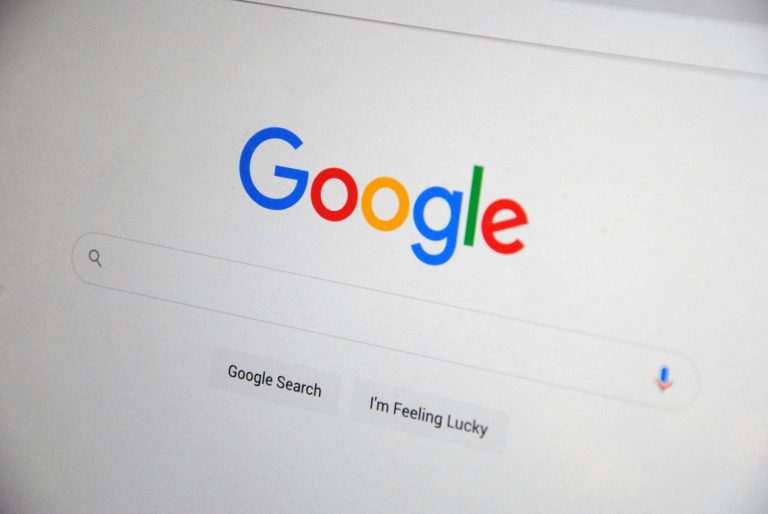
How to check for AI-generated content
Concerned that you’ve solicited human-written content but received an alternative by artificial intelligence (AI) instead? While Google doesn’t expressly penalise AI-generated content, it does value
When we think of marketing, it’s common for the mind to go to outbound marketing in its various forms. These are the adverts, emails, and leaflets that come to unbidden to us, trying to grab our attention to direct it towards a brand.
Inbound marketing can be seen as the inverse, and its relationship with SEO can be very strong if a business’s marketing strategy aligns strongly with SEO and content. What is their connection, and how can you use your knowledge of both to make them work in harmony?
Inbound marketing, in a nutshell, invites customers in. It’s a marketing methodology that is designed to draw customers to your brand with helpful solutions, engaging content, enticing events, and indeed anything that answers a potential customer’s needs.
Unlike outbound marketing, which takes a proactive approach to making a customer interested in a product, inbound marketing looks to ‘naturally’ draw customers to your business and establish a bond with them. Ideally, inbound marketing looks to build a rapport with customers, establishing yourself as a source of trust and reliability in their minds.
This arguably takes more time than outbound marketing, which relies on media like emails and social media posts that can usually be constructed in multiples per day and scheduled with the help of various marketing tools. Outbound marketing can be sent to anybody, regardless of an existing knowledge or interest in your brand, and too much of it can easily damage people’s perception of your brand. One study suggests that around 40% of internet users find spam adverts a “very big intrusion on life”.
Inbound marketing, however, must rely on quality and value to attract customers. This is where its relationship with SEO begins to crystallise.
Search Engine Optimisation is the practice of increasing your site’s visibility on search engines like Google. This is done by creating high-quality content that Google ranks well, using principles that have been gleaned over the years through hints, testing, and observations made by the SEO community. Google is always changing its algorithms, so SEO is rarely the exact same from one week to the next.
The key difference between inbound marketing and SEO is that the latter is a tool, whereas the former is a methodology of marketing that can include SEO and other practices within it. SEO can help to refine and inform your inbound marketing strategy, particularly if you are aiming to draw visitors to a blog or news section of your website.
Being a rather broad term, inbound marketing can involve different strategies and approaches to achieve its goals. It requires planning and a sound ethos, with a strong understanding of what your inbound marketing is looking to achieve in the short term as well as the long term.
Are you looking to be informational and become a trusted source of data for your customers? Or perhaps you’re looking to engage with them on a deeper level, providing entertainment or discussion that invites customer opinion and feedback? Whatever your content’s raison d’etre, it should be imparting value to the customer in some way.
With that in mind, your SEO should be built around understanding your buyers’ personae and the kind of things they’re searching for, as well as the platforms they’re likely to be found on. Market research is always crucial to a good marketing campaign, but combined with technically sound SEO, your inbound marketing will be supercharged.
Absolutely. In fact, you probably should.
SEO is not the be-all-and-end-all of inbound marketing per se, but it’s a factor that can’t be ignored. A 2019 survey by Moz found that out of 1,400 respondents, 77% use Google at least three times a day. With a 91.9% market share as of 2022, Google is the major route for many people to find the answers they’re looking for online, and it will be the main genesis of your buying cycles.
This means that you can rest assured the vast majority of traffic will be coming through search, and the vast majority of that will be coming through Google. Thus, optimising your content for Google – whilst remembering the human behind the searches – will make sure that your inbound marketing is not falling at the most basic and important hurdles.
Of course, this only applies to the media that you own. Videos, graphics, and written content that you host on your pages can be optimised for greater visibility, but inbound marketing in the form of link building and exposure from others who want to talk about your brand can only be influenced so far, and you have no direct control of this.
So, whilst you can incorporate SEO to an effective degree in your inbound marketing strategy, be aware that there will be some factors that cannot be fine-tuned to your liking (though this should be no surprise to any seasoned marketer).
It should be noted that using SEO to help your inbound marketing doesn’t render the efforts of your inbound marketing ‘unnatural’ or falsified; the two can coexist without being mutually exclusive. Inbound marketing looks to answer customer needs and engage their genuine interests through content. SEO aims to make that content more visible and easier to find on search engines.
If you can stand by your content as a genuine, valuable offering to your customers, then you needn’t feel like it’s being cheapened by employing SEO. Indeed, SEO combined with inbound content may be one of the most unintrusive approaches to marketing that you can take. After all, customers are making the searches in the first place – your results are simply there!
SEO combined with inbound marketing can also help elucidate local businesses and events for the user performing the search. For instance, somebody looking for digital marketing services in Manchester may not be aware that there is a marketing agency local to their area. If that agency uses Manchester SEO for their pages, combined with some helpful content all about SEO and marketing, then they may well find themselves with a new customer purely through SEO and inbound marketing. Success!
The answer to this question rests largely on the kind of online presence your business has, but chances are good that the answer is that both are equally important.
By and large, SEO will likely be the most deserving of your immediate attentions. The reason for this is that SEO doesn’t necessarily rely on a marketing campaign to be effective. Even if a business has very little in the way of digital marketing, it will still be crawled by Google and ranked (or not) like every other page that the Googlebots can find.
As long as your business has a website, SEO will be important, and good SEO will be constantly working in the background to bring in more traffic. Search never sleeps, after all.
It may be helpful to ask yourself: am I looking for quantity of leads, or quality? Being ranked on page one of a search engine results page (SERP) is good for traffic – great, in fact – but that doesn’t necessarily mean you’re going to see a lot of conversion from that digital footfall.
Conversely, a solid inbound marketing strategy might have yielded some fantastic content for your website, but how effective is the return if your results are languishing on page three of the results? Research suggests that almost all of the results traffic of a search belongs to the first and second pages, leaving little hope for results beyond the tip of the iceberg.
Websites that need more people to actually engage with their content should probably lean more into an SEO focus to begin with. Websites that need to make use of their high traffic, on the other hand, should probably be thinking about how to make the ‘inbound’ match the ‘marketing’ before looking to refine or increase that traffic.
The right approach will differ for each business and there is no one-size-fits-all solution. Small businesses operating in Liverpool will be looking to appeal to Liverpool SEO to grab local custom. Big, nationally recognised brands will be casting their net farther and wider. The marketing plans between these scales will be very different and will likely include different mixes of SEO focus within them.
To understand whether you need more focus on inbound marketing, greater attention on SEO, or a joint approach to both, it may be helpful to create a plan with as much detail as possible. Ideally, it should include:
Through your plan and the research that will inform it, you can get a solid grasp on what your SEO efforts will look like: the keywords and phrases you need to target, the solutions you need to embody, and the value you need to represent when your results show alongside so many others on the SERPs.
We can!
Aqueous Digital has been providing informed, educated SEO services for over a decade, and our experience totals much longer than that. We get to know every single one of our clients on a deep level so that we can get them the very best return on their investment. With our work yielding an average 310% ROI, we can optimise your SEO and show you the power of strong search results whether you’re aiming in Manchester, Liverpool, or nationwide.
To learn more about our award-winning digital marketing services, please contact us today.
Content is King. What is content marketing?
Creating great content: How to write for SEO
How digital marketing has changed over the years
How video content can elevate your website
Top 20 Facts about Manchester You Never Knew
Aqueous Digital’s Ultimate Guide to the cost of SEO in the UK
Aqueous Digital’s Guide to the Top 501 SEO and Digital Marketing Terms
How video content can elevate your business

Concerned that you’ve solicited human-written content but received an alternative by artificial intelligence (AI) instead? While Google doesn’t expressly penalise AI-generated content, it does value

At Aqueous Digital, we’ve long maintained the belief that the concept of reviewing companies is flawed, having a significant effect on the success of businesses

Searching for different ways to connect with your target audience? With curated content, you can engage key demographics that are vital for the success of

Taking no less than two weeks to complete, Google’s first core update of the year has now finished rolling out, as reported by Search Engine

It’s no secret that ever since the early 2000’s, Google has been the go-to search engine for online users across the world, but with AI

Struggling to determine how much money your construction business should be dedicating to your marketing efforts? As award-winning digital marketing experts, the Aqueous Digital team